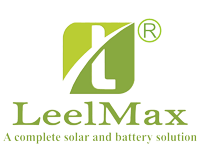Introduction:
As the world shifts toward sustainable energy sources, one technology is standing out: solar energy. While many people know that solar panels can help reduce carbon footprints and benefit the environment, fewer are aware of the significant financial advantages they can offer. For homeowners and businesses alike, the impact of solar energy on monthly utility bills is a game-changer. In this blog, we will explore the untold financial benefits of solar energy, showing you how solar panels can drastically lower your energy costs while also contributing to long-term savings.How Solar Energy Can Drastically Lower Your Monthly Bills
-
Reduction in Energy Costs:
The most direct and obvious impact of installing solar panels is a reduction in energy costs. Solar panels generate electricity from sunlight, which means that homeowners and businesses can rely less on energy from the grid. Depending on the size of the system and the location, solar panels can provide a significant portion—if not all—of the electricity needed to run your home or office. With a decrease in reliance on traditional energy sources, you’ll notice a drop in your monthly utility bills. -
Net Metering:
Net metering is a system that allows you to earn credit for any excess energy your solar panels generate. If your panels produce more electricity than you need, the surplus is sent back to the grid, and you receive credit for it. This credit can offset the cost of electricity you consume during periods when your solar system isn’t generating power, such as at night. Essentially, this means that during sunny days, you could generate enough energy to reduce or even eliminate your electricity costs for the month. -
Protection Against Rising Energy Prices:
Energy prices are unpredictable and often rise over time. As traditional energy sources like coal and natural gas become scarcer and more expensive, utility companies are forced to increase their rates. By investing in solar panels, you can lock in your energy costs at a lower, more predictable rate. The cost of solar energy is stable and decreases over time, especially as technology improves and panels become more efficient. This helps homeowners and businesses avoid the rising costs of grid electricity. -
Increased Property Value:
While not directly impacting your monthly bills, it’s important to note that solar energy systems can increase the value of your property. Studies have shown that homes with solar panels sell for more than those without. This increase in property value is an added benefit that pays off when you decide to sell your home. In fact, the added value can often offset the initial cost of installing the solar system, leading to a great return on investment. -
Incentives and Tax Breaks:
Governments around the world offer incentives to encourage the adoption of solar energy. In many countries, including the U.S., homeowners and businesses can take advantage of tax credits and rebates that help offset the upfront cost of installing solar panels. For example, the federal Investment Tax Credit (ITC) allows you to deduct a significant percentage of the cost of installing solar panels from your federal taxes. These incentives reduce the initial financial burden and make solar energy even more affordable.
How Much Can You Save with Solar Energy?
The amount of money you save with solar energy depends on several factors, including the size of your solar system, the location of your property, and your current energy consumption. On average, a typical homeowner can save anywhere from $10,000 to $30,000 over the lifetime of their solar panels. In addition to the financial savings, you’ll also enjoy the peace of mind that comes with knowing you’re contributing to a greener, more sustainable world.Challenges to Consider When Installing Solar Panels While the financial benefits of solar energy are clear, there are some challenges to consider when installing solar panels.
-
Initial Cost of Installation:
The upfront cost of solar panel installation can be significant. However, as mentioned earlier, various incentives and financing options are available to help offset these costs. Additionally, the long-term savings from reduced energy bills make the investment worthwhile. -
Space Requirements:
Solar panels require adequate space to be installed, typically on the roof of a building. If your roof isn’t suitable for solar panel installation, or if you don’t have enough space, it may be more difficult to take advantage of solar energy. However, there are alternative options, such as community solar programs, where you can purchase solar power from a nearby solar farm. -
Maintenance and Upkeep:
While solar panels require very little maintenance, it’s important to keep them clean and ensure they’re functioning properly. Regular cleaning and occasional inspections will help ensure that your system is working at optimal efficiency.
